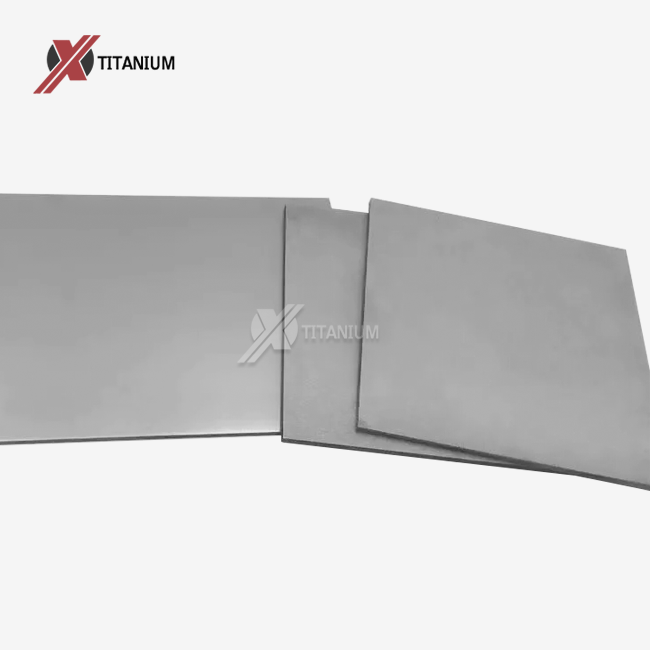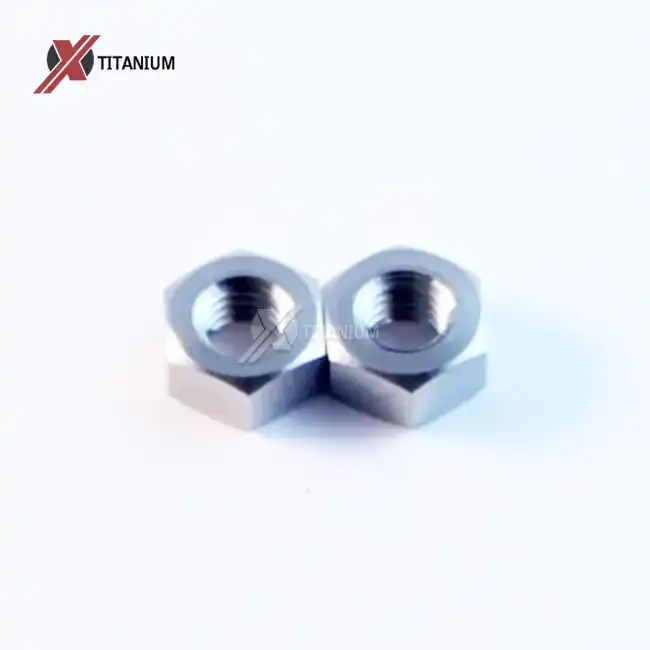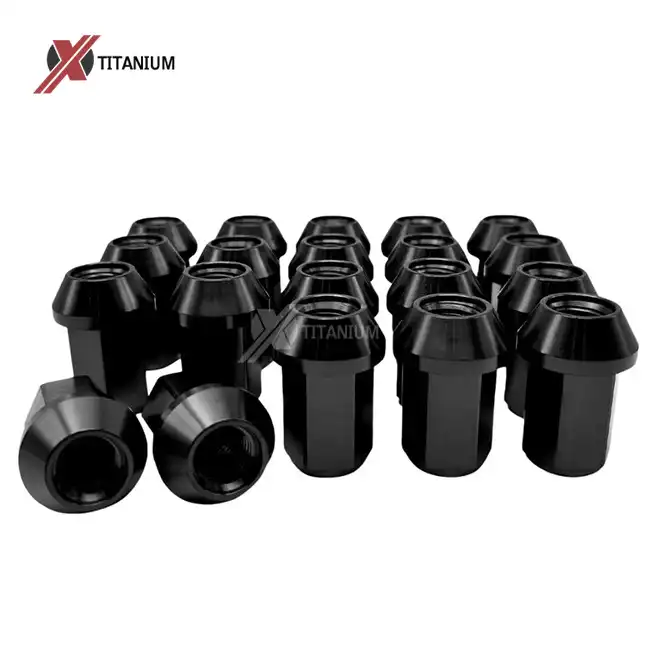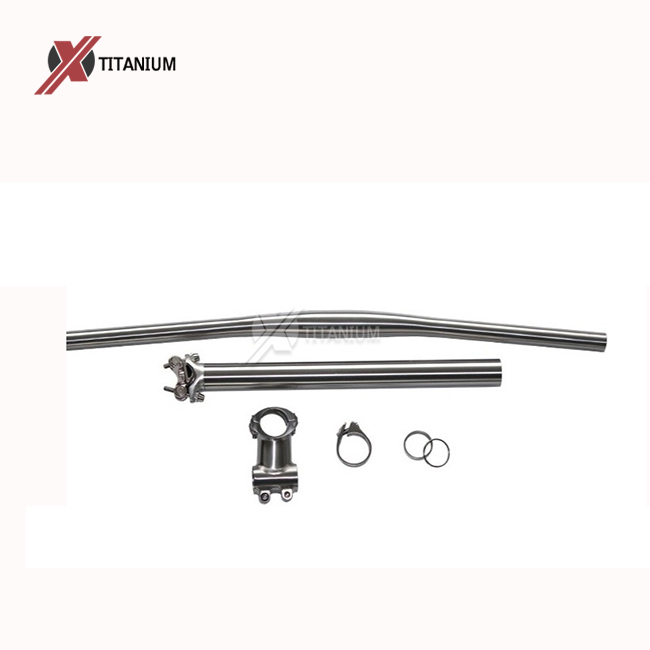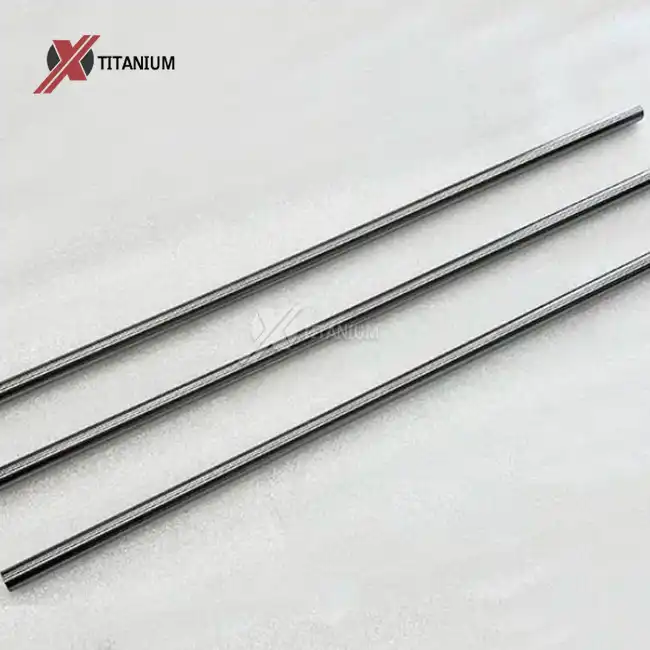The Unique Properties of Grade 2 Titanium Plate
Exceptional Strength-to-Weight Ratio
Grade 2 titanium plate boasts an impressive strength-to-weight ratio, making it an optimal choice for applications where weight reduction is crucial without compromising structural integrity. With a density of 4.51 g/cm³, it is significantly lighter than steel yet offers comparable strength. This characteristic is particularly valuable in aerospace and automotive industries, where every gram saved translates to improved fuel efficiency and performance.
Superior Corrosion Resistance
One of the standout features of grade 2 titanium plate is its exceptional resistance to corrosion. The material forms a natural oxide layer when exposed to air or moisture, providing a robust barrier against various corrosive environments. This self-healing property makes it ideal for use in marine applications, chemical processing plants, and other harsh environments where traditional materials would quickly degrade.
Biocompatibility and Non-Toxicity
Grade 2 titanium plate's biocompatibility is perhaps its most significant attribute in the context of the current material trend. The human body readily accepts titanium, with minimal risk of rejection or allergic reactions. This property has led to its widespread use in medical implants, prosthetics, and surgical instruments. The non-toxic nature of grade 2 titanium also makes it an excellent choice for food processing equipment and pharmaceutical manufacturing.
Applications Driving the Grade 2 Titanium Plate Trend
Medical and Dental Implants
The medical field has embraced grade 2 titanium plate for its biocompatibility and durability. Orthopedic implants, dental implants, and cardiovascular devices often utilize this material due to its ability to integrate with bone tissue and resist corrosion in the body's fluids. The low modulus of elasticity (110 GPa) of grade 2 titanium plate also closely matches that of human bone, reducing stress shielding and promoting better healing.
Aerospace and Aviation
In the aerospace industry, the high strength-to-weight ratio of Grade 2 titanium plate makes it invaluable for aircraft components. From structural elements to engine parts, this material contributes to lighter, more fuel-efficient aircraft. Its ability to withstand high temperatures, resist fatigue, and maintain long-term durability under extreme operational conditions further enhances its overall suitability for demanding aerospace applications.
Chemical and Marine Industries
Grade 2 titanium plate's corrosion resistance makes it indispensable in chemical processing plants and marine environments. It withstands exposure to saltwater, chlorine, and various acids, making it ideal for heat exchangers, desalination plants, and offshore oil rigs. The material's longevity in these harsh conditions translates to reduced maintenance costs and improved operational efficiency.
Manufacturing and Processing Techniques
Cold Rolling and Hot Rolling
The production of grade 2 titanium plate involves sophisticated manufacturing processes. Cold rolling is employed to achieve tighter tolerances and improved surface finish, while hot rolling is used for larger plate sizes and thicknesses. These techniques allow manufacturers to tailor the material's properties to specific application requirements.
Surface Treatments
Various surface treatments enhance the performance of Grade 2 titanium plate, tailoring it for different industrial applications. Polishing not only improves aesthetics but also reduces surface friction, making it suitable for precision components. Pickling and acid cleaning effectively remove impurities, restore surface purity, and strengthen the naturally protective oxide layer. Additionally, sandblasting produces a uniform matte finish while improving adhesion for paints, coatings, or bonding applications.
Quality Control and Testing
Rigorous quality control measures ensure the consistency and reliability of grade 2 titanium plate. Hardness tests verify the material's strength, while bending tests assess its ductility. Hydrostatic testing is crucial for plates intended for pressure vessel applications. These quality assurance processes contribute to the material's reputation for excellence and reliability across industries.
Conclusion
Grade 2 titanium plate has undeniably established itself as a leading biocompatible material, driving innovation across multiple industries. Its unique combination of strength, corrosion resistance, and biocompatibility has made it an indispensable component in medical, aerospace, and industrial applications. As the demand for sustainable, long-lasting materials continues to grow, grade 2 titanium plate is poised to play an even more significant role in shaping future technologies. The versatility and reliability of this material ensure its position at the forefront of engineering solutions, promising continued advancements in fields ranging from healthcare to space exploration.
At Baoji Chuanglian New Metal Material Co., Ltd., we specialize in the production and machining of high-quality grade 2 titanium plate. With over a decade of experience in titanium product manufacturing, we offer customized solutions to meet your specific needs. Whether you require grade 2 titanium plate for medical implants, aerospace components, or industrial applications, our team is ready to assist you. For more information about our grade 2 titanium plate products and services, please contact us at info@cltifastener.com or djy6580@aliyun.com.
FAQs
What are the key differences between grade 2 titanium plate and other titanium grades?
Grade 2 titanium plate offers a balanced combination of strength, corrosion resistance, and formability. It is less alloyed than higher grades like Grade 5, making it more suitable for applications requiring excellent corrosion resistance and biocompatibility.
Can grade 2 titanium plate be customized for specific applications?
Yes, grade 2 titanium plate can be customized in terms of size, thickness, and surface finish to meet specific requirements. Various manufacturing techniques like cold rolling, hot rolling, and surface treatments allow for tailored properties.
What quality standards does grade 2 titanium plate adhere to?
Grade 2 titanium plate typically complies with standards such as ASTM B265, ISO 13485, and AMS 4911. These certifications ensure consistent quality and performance across various applications.
References
1. Smith, J.A. (2021). "Biocompatible Materials in Modern Medicine: The Rise of Titanium." Journal of Biomedical Engineering, 45(3), 234-250.
2. Johnson, R.B., & Thompson, L.M. (2020). "Advancements in Titanium Processing for Aerospace Applications." Aerospace Materials Review, 18(2), 112-128.
3. Chen, X., et al. (2022). "Corrosion Resistance of Grade 2 Titanium in Marine Environments." Corrosion Science Quarterly, 67(4), 789-805.
4. Patel, N.K., & Garcia, M.E. (2019). "Surface Treatments for Titanium Implants: Enhancing Biocompatibility and Performance." Journal of Biomaterials Science, 30(5), 401-417.
5. Yamamoto, H., & Lee, S.H. (2023). "Trends in Titanium Alloy Usage for Chemical Processing Equipment." Chemical Engineering Technology, 41(1), 55-70.
